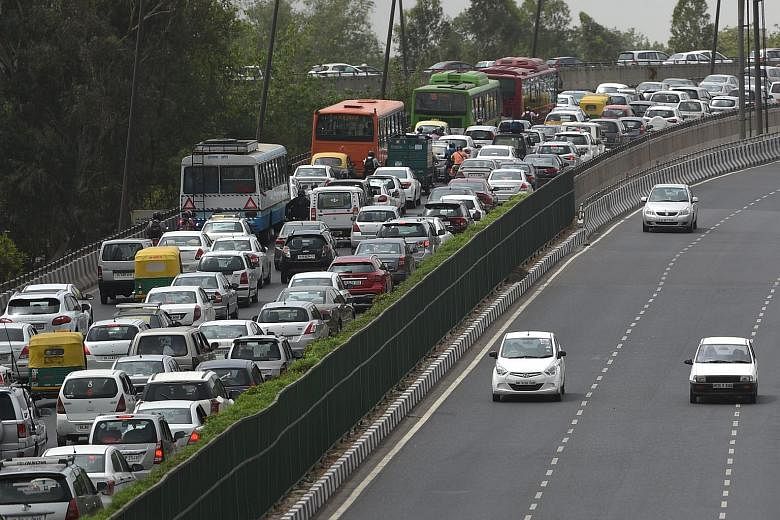India is building national highways at a rate of 30km a day, beefing up its infrastructure much like other countries in Asia keen to leverage on enhanced connectivity to grow their economies even as the rest of the world slows down.
But regional security issues could cloud that promise, such as rising China's rivalry with the United States in the Asian region and North Korea's nuclear ambitions.
These and other security and economic issues were discussed on the second and last day of the Nikkei "Future of Asia" Conference yesterday.
India's Finance Minister Arun Jaitley, in his speech, said infrastructure development will be a "very powerful" driver of economic growth in India, which he estimates to be over 7 per cent this year.
He revealed plans to build 10,000km of national highways, modernise 400 railway stations and turn them into commercial hubs, and add 25 airports to increase the country's total to 95.
With China's growth slowing, India is well placed to provide Asia with a new growth engine, Mr Jaitley said. He added that India has embarked on a series of structural reforms to boost productivity, such as changing the tax system and making it easier to do business.
"Asia is a dynamic region whose growth rate is three times faster than that of the developed world. Belatedly, slowly but surely, Asia seems to be becoming even the hub of trade integration," he said, citing examples like Asean and the 12-country free trade deal, the Trans- Pacific Partnership.
Japan also aims to be a key driver of growth, with Prime Minister Shinzo Abe pledging to commit funding of US$200 billion (S$276 billion) to build "high-quality infrastructure" around the world in the next five years. This was announced in a speech read by his aide at a dinner gathering of the conference.
Within Asean, there are also rail and waterway projects under way to connect member states, from Vietnam through Cambodia to Thailand, said former Asean secretary- general Surin Pitsuwan during his speech yesterday. He urged Asean to invest its US$900 billion reserves in projects that will reap benefits for the whole region.
The future may sound rosy, but some speakers warned of the challenges of insufficient funding and poor management of projects.
The challenge for Indonesia, for instance, is how to accelerate private-sector involvement and come up with "innovative and creative" projects that are attractive to investors, the country's National Development Minister Sofyan Djalil said.
There are also issues that could disrupt peace and stability in the region, said scholars at a panel discussion on Asia's security challenges.
American Enterprise Institute's senior fellow Michael Auslin, for one, warned that if the US and China continue to compete for dominance, there could be "more instability, uncertainty and confrontation between the two countries".
But Tsinghua University's international relations expert Yan Xuetong argued the US and China can have "peaceful, healthy competition", as long as it does not escalate into war.
Organised by Japanese publisher Nikkei Inc, the conference brought ministers, scholars and business experts together to discuss the theme "Rising to Global Challenges and Realising Asia's Potential".
Singapore's Emeritus Senior Minister Goh Chok Tong delivered the keynote speech on Monday, urging Asian leaders to tackle key challenges, including historical baggage and territorial disputes, together.
Mr Goh returned to Singapore yesterday, after meeting Japan's Population Minister Shigeru Ishiba, Sumitomo Mitsui Banking Corporation chairman Masayuki Oku and Keidanren business federation chairman Sadayuki Sakakibara.

